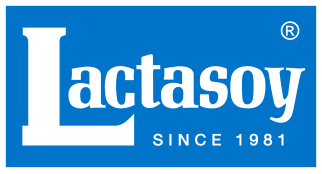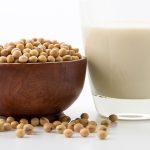Soy
Overview
People have been eating soybeans for almost 5,000 years. Unlike most plant foods, soybeans are high in protein. Today, researchers are interested in both the nutritional value and the potential health benefits of soy.
Several clinical studies of people who eat a lot of soy foods, such as people in Asia, suggest that soy may help reduce menopausal symptoms, and lower the risk of heart disease and osteoporosis. Researchers are also examining whether eating soy foods can help prevent hormone-related cancers, such as breast, prostate, and uterine cancer.
Isoflavones are phytoestrogens — chemicals that act like the hormone estrogen. Soy phytoestrogens are very complex, and they can either strengthen or reduce the effects of estrogen in the body.
Soy contains other nutrients as well. Some researchers believe that the healthful benefits of soy foods may come from the combination of these nutrients and not just the isoflavones.
Therapeutic Uses
High Cholesterol
A number of studies suggest that soy protein may reduce the risk of heart disease by lowering levels of LDL “bad” cholesterol. For example, in a clinical study of nearly 5,000 men and women living in Japan, those who ate the most soy had the lowest cholesterol levels. Not all studies agree, but those that show benefits seem to indicate that soy protein may lower LDL up to 10% and total cholesterol up to 7%. A review of studies found that people with high cholesterol may reduce their total cholesterol by 9% if they eat 31 – 47 grams of soy protein instead of meat each day.
Cancer
Evidence suggesting that soy may help prevent hormone-related cancers, such as breast, prostate, and uterine cancer, comes from population studies. These studies look at large numbers of people and have found that eating a diet high in soy protein may lower the risk of developing these kinds of cancers.
Osteoporosis
Researchers have started to investigate whether soy foods can help prevent osteoporosis by increasing bone mineral density (BMD). Most of the research has focused on the isoflavones in soy protein. Although there aren’t many studies, most suggest that women approaching menopause who eat isoflavone-rich soy protein are more likely to boost BMD than women whose diets are low in soy isoflavones. Some studies suggest that 80 – 90 mg of isoflavones in 40 g of soy protein worked the best.
Menopause
Soy isoflavones may help reduce hot flashes and night sweats that many women have during menopause. In clinical studies, postmenopausal women who eat high amounts of dietary soy protein (20 – 60 g per day) generally have fewer and less intense hot flashes and night sweats than those who eat less soy.
Results of studies about whether soy supplements reduce menopausal symptoms have been mixed. In several studies, the women who took placebo also had fewer menopausal symptoms.
Some researchers also think that using soy extracts with different isoflavones in different studies can cause the results to be different. The studies with the most positive results have used soy products with at least 15 mg of genistein (an isoflavone) per day.










